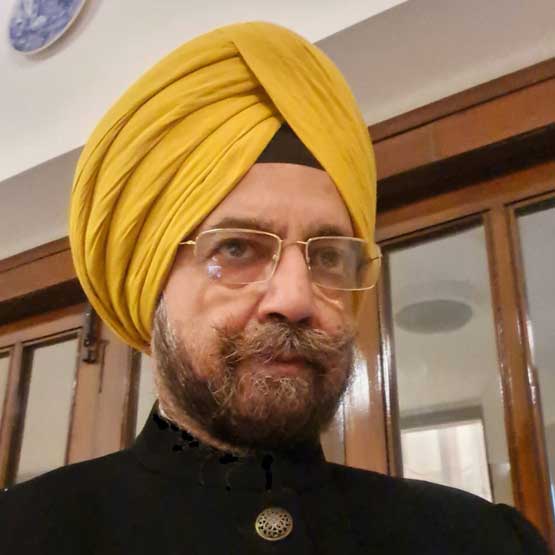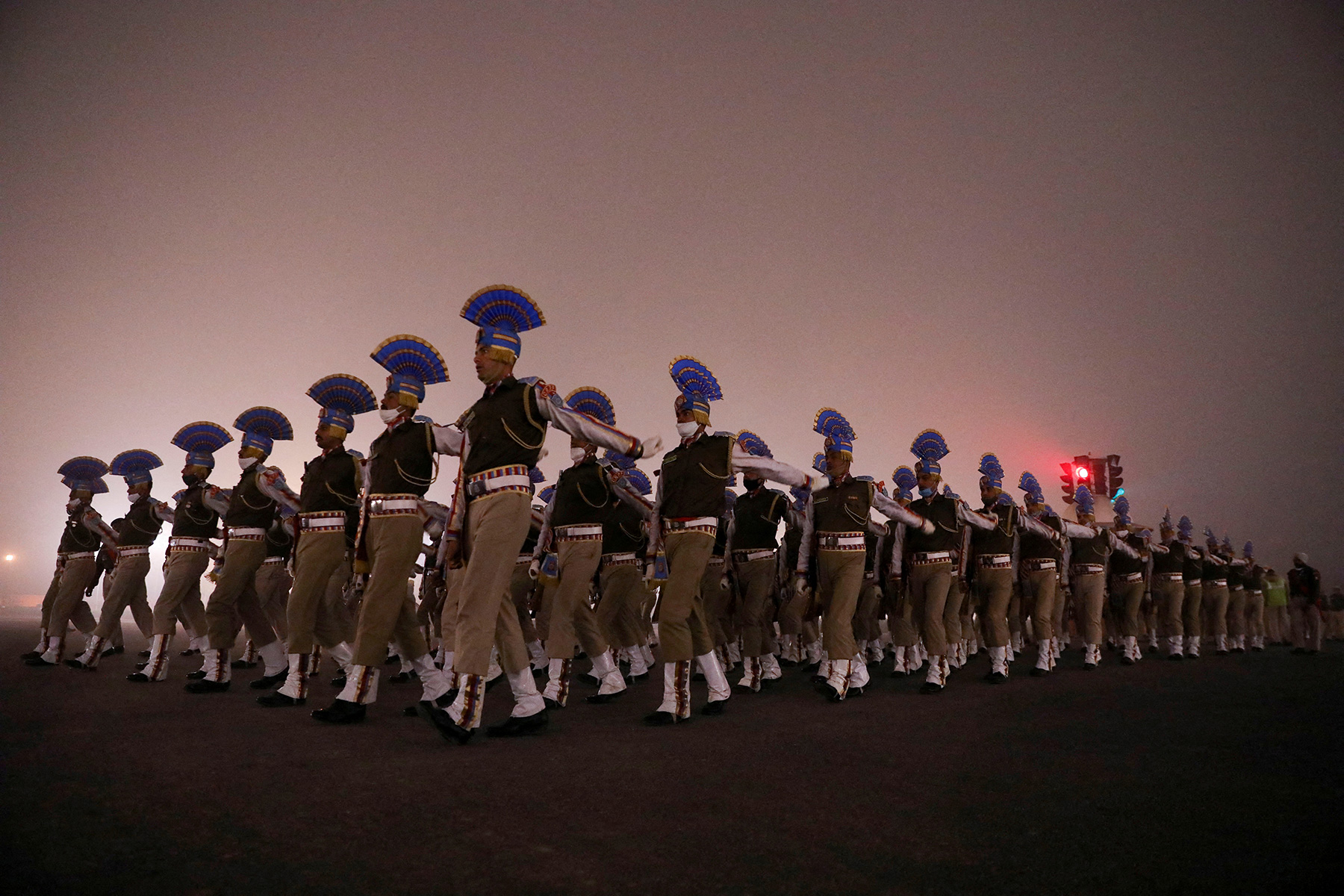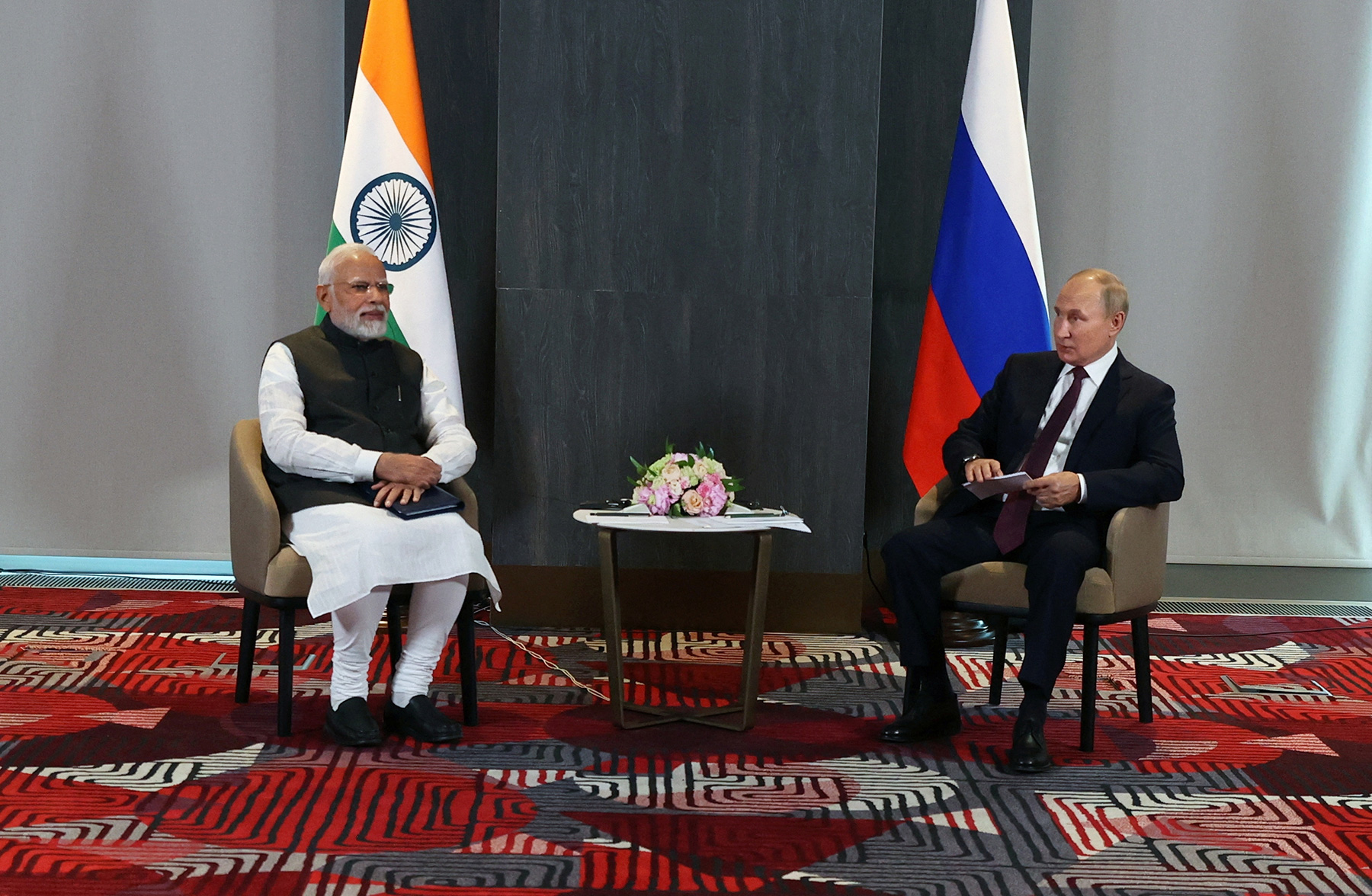The world is going through a very difficult, turbulent period. National Secretary All India Congress Committee, Co-Chairman of Eurasian peoples’ Assembly General Council Dr. Dalbir Singh shared his perspectives on some of the existential questions, including whether the era of globalization is over, how peace can be preserved on the planet and what tools should be employed for this purpose.
Does history repeat itself? Is the current situation in world politics comparable with some other historical period?
I think, if you look at the history of the world, it has been no different from what happened earlier, the world has always been ridden with conflict. In fact, I was reading a report from Carnegie on this a few days ago, because I talk a lot on global peace, stability, harmony. So, as I was starting to read it, it said the world today is a little more peaceful than it has been ever in the past. We have had more violent parts, more violent periods of history in many centuries. But no comparison can actually be made because civilization has evolved over thousands of years. But the point is, yes, the world is ridden by conflict. There is unrest in Iraq, Syria, Libya, Somalia, Mali, Burundi, Venezuela, India-Pakistan, Israel-Palestine, South China. Another dimension is the Ukraine Crisis. My own personal take on this is that warfare is not a solution. Von Clausewitz’s famous dictum was ‘War is politics by other means’. Wars were sometimes instruments, may be temporary measures but even then, they were not lasting or durable solutions in any era of history, because at the end of the day even the Cold War also ended because we sat down for dialogue—constructive dialogue, discussion, and debate. World War II also came to an end because Stalin, Roosevelt, and Churchill sat down together to work out joint strategy to end the war and restore peace.
They sat down together in 1943 and then in 1945, but they could have sat down together in 1939 just as well. Now, if you go into the archives, there are enough documents to reveal that the Soviet Union made concrete proposals to Britain and France in 1939, that makes a deal that would take on Axis powers most struggling, but I think history would agree that Churchill wasn’t interested in doing it, because Churchill thought that Hitler would ultimately go for Russia because as per him, Hitler’s principal target was Russia. The French also condescended to that view. If at that time Britain and France had cooperated on the Soviet proposals to be together, the world would have been saved from catastrophic disaster and mayhem. More than 55 million people died, much more wounded and crippled, and Russia paid the highest price, Russia lost 27 million people and one third of its national assets lost, but who gave you pity for it? None. The fact of the matter is, first of all, you liberated the world, that’s what I tell everyone. Russia in fact can turn around and say you played a stellar role in ending World War II, so you were the liberator, you liberated the world, from the clutches of fascism, but you don’t get the credit, nor do you take credit. In fact, you should be seen globally as a hub of peace making.
In Crimea, Yalta held a historic world event, the holiday world peace conference, because peace emanated from there. If you had not held the conference, World War II would not have ended seven months later. So, in history, these are people who have been part of many things, nothing is forever. It’s a strain on your border today, it was on our border sometime, it will be in Afghanistan in some day. So, these will come and go, and we will have to learn to cope with it, Russia is a very strong country. And you are lucky you have a very powerful President he’ll be able to deal with it.
Returning to your question, yes, history constantly repeats itself because while we are all civilized, we have all come of age but still we are all vulnerable. I am Indian. I come from a land of the great apostles of peace like Budha, Nanak and Gandhi. India has never hated any country; India has never gone antagonized any neighbour or a region. We don’t do that because spiritually, harmony is indoctrinated as part of our teaching. Yes, we have a right to defend our unity, sovereignty and integrity like Russia is defending its interests. Three thousand years ago in the Maha Upanishad it was written “Vasudhaiva Kutumbakam”, it means “the world is but one family”, so if it is one family, why are we going on destroying this family?
Is the era of globalization ending, or is it inescapable due to high levels of interdependence among nations?
I cannot say what lies ahead for the future of globalization. Honestly, that has been little damming to that whole concept of globalization that came in the 90s and early 2000s. Otherwise how do you explain, two countries like China and US, if globalization had not been introduced as a building stone, America would not have invested their money for manufacturing in China. Today, China can shut down and weaponize, that’s a separate issue. So, today everyone can weaponize everything, every commodity, every service that you render to others. Like some people talk, I met people from outside, they say tomorrow all the freight and aircraft can be grounded because almost 75% are palladium, and neon, and other metals that are used in chips for airplanes and ships, they all come from Russia and Ukraine.
So, if they decide not to sell, the world will not have an alternative. They may produce an alternative in two years, but for two years you can’t stop flying. It is inescapable, same with grain, same with energy. So, if we are going to start weaponizing what we have: Are we moving towards that way or not going towards that goal? But at the end of the day, a certain amount of dependence has to be there, because when God created this Earth, God did not make it equitable to the sources in terms of state distribution. You have a lot of energy; we don’t have much energy or maybe we need to tap into that. Some countries are rich in hydrocarbons. Look at countries in the Middle East, look at Dubai, look at Saudi Arabia. What were they 50 years ago? They didn’t have roads! We got a big construction project, but my father reluctant to go there, we could have made billions! But my father said no, he runs a very big construction company, he was apprehensive because of highly underdeveloped infrastructure. now look at how amazingly they’ve progressed and transformed. And look at entire West Asia, Dubai, they have become very prosperous and major centres of global investments. And why? Hydrocarbons! They found them there and that’s how it is.
So, because there’s no equitability of resources around the world, the world will have to lean on one another.
And of course, there’s a little lean back and forth, but then what will happen? Strategic resources! Every country will try and control itself, look for core strategic resources, but for other things you still have to rely. See, if I want someone to make pants for me and they stop making pants for me, it doesn’t affect my fundamental existence. But a country needs two or three main things: grains, if you have grains, you have enough energy. You can sustain your country, you can live without luxury, but when you have grains, you can sustain your economy. But if you don’t have energy and you don’t have grain, then you famish. So, the core area, I think, for countries in times to come, is control, and the really struggling areas is what they have control over. There are so many interdependencies as well, it is really hard to explain the level of dependency. And then secondly, what happened is like in China; labor is very cheap. Why is America and Apple making its computers there in China? The labor is cheap. Tomorrow, who knows? We might have Indian labor in Russia. I think our Prime Minister has also spoken to your president, that you have a huge geography, and we have a huge population, and our population is very skilled at agriculture and farming, IT and for forestry, and a number of such related subjects. We have been thinking of a sort of package. We have made an offer, that we could help raise your production. So, I think in these areas, collaboration can take place, it doesn’t disturb you, it doesn’t disturb us tomorrow. If a new level comes in, they bring employment. People, they like to view prosperity, and both the parties, and there’s nothing strategically wrong about it.
How do you view the current world political situation? What are the possibilities of reducing and resolving conflicts between the "West" and the "East" diplomatically? What can sovereign nations do and what tools are available? Public diplomacy, second track diplomacy…?
I practiced public diplomacy. It’s not a question of belief or faith. We must understand that there are tensions in the world, inescapable tensions. The world is divided geopolitically. Though the geopolitical situation is in transit, it has predominantly been a unipolar world. At least, I can speak for India and Russia, that we both wanted a multipolar world, and a multipolar world, which is based on equity, based on cooperation, based on trust, based on respect, and sovereignty of nations, and conformity with international law. That’s the kind of things we both agree on. At the moment, what has happened is that there is no sense of equity, the world lacks equity. Where is equity? Because you use one yardstick when you measure the activity of one country or region, one set of values, and for another country there is another yardstick. So, the measures are two different measures, there is no equity, because there is no referee. Okay, there’s the United Nations, where is the United Nations today? When the conflict in Ukraine has started, where is the United Nations? Are they there to prevent escalation and stop the conflict? The United Nations has to take on board everyone without being partisan. It is like a beacon to guide the world. The UN also needs extensive reforms to meet current global challenges.
So, we need major reforms in these areas, we need new instruments of collective security and global governance. We can have new institutions for collective security, whether for the Euro-Atlantic region or the Asia-Pacific region, again based on equitable interests, based on cooperation. Let everyone participate! Why are we enemies? We can be rivals, we can be partners, but not enemies. There is a difference between a rival and an enemy. So, rivalry can remain, geopolitical rivalry will be there. But why is everything we-and- them? That is what is destroying the world. So why “if you are not with me, you are with them”. Why? What about us? We say “Vasudhaiva Kutumbakam”, “the world is but one family”. That’s the philosophy we subscribe to. So, why should someone say, like, “if you talk to them, you don’t talk to us”. A lot of pressure was brought to us, we can’t buy energy, we can’t buy grain, we can’t do this. We said “No!”. Firstly, we have to cover our own strategic interests. We have lost, we have 1.4 billion people too, to support, to oversee our own interests. We don’t care! So if we don’t buy from Russia, will you give us at the same rate? They say “No”. Then we don’t get why you are telling us not to buy. Then you do not tell us how to look after our people. Our poverty will grow. Even now, the past two and a half years have driven people back into poverty because we have taken them out in the previous ten years because of covid, because of inflation, depression, economics is not on the bright side.
So, I think we need institutions. They should appear, there should be someone from the institutions that says “alright, where is the blue flag?” but, there is no flag anywhere. So, one might say “I’ll do, whatever I need my country to do”, the other say “I will do, what my country needs to do”. Everyone wants to defend his own population. So, it’s a free-for-all world. This is also not good, there are no restraints. And then you cannot have prejudices. See, if you set up an international court of justice for justice, but they cannot be arbitrary. For the same crime, you call a fellow and he says “No-no, it was one of those diplomatic exercises, it was not a crime”, and then you call another, and he says it is a crime. You have to have a level playing field. You have to have equity and a sense of justice. So, all these institutions need reforms. Collectively!
Does reforming the UN security council help in serving the purpose of achieving and maintaining peace on the planet?
The point is, when people go and attend these meetings, they must speak! Unless you take everyone on board. It doesn’t mean if you are a lesser country, you don’t have the right to speak. The United Nations must be a representative organization. It is the soul of the world. If it is not representative, poorer countries, underdeveloped countries, countries with smaller populations, they are also UN members. Like in my family, I can have six children, one is very poor, but I as the head have to look after him. If there is no equity, then there is no balance in this world.
Can India, as a swing power, prevent the escalation of current tensions into a greater conflict?
India can play a very constructive role, even in the current scenario. For two things: one, India has an image: its unblemished record of nonproliferation. India has been a (nuclear) power for a number of years, they have not unleashed anything on anyone so far. We have fought the war to defend ourselves many times, that’s ok. But like I said, we come from a land of Nanak, Gandhi, Vivekanand great apostles of peaceful existence, so India has an image that is acceptable to the rest of the world. Since we are at peace, a peace-loving country, so we can also be a peace-making country. Therefore, India’s experience, maturity, and don’t forget, we are also twenty percent of the global population, so what matters on this planet is also of concern to us, because twenty percent of the planet is us. Therefore, we have a say globally, in these circumstances, Russia and India are very great friends. Very often we have also used offices of Russia. When we have problems with other adversaries, Russia has always come to our rescue. Even forgetting about solutions, at least sitting at the table, I know that. It happened a few times. It is the same way; we are like brothers. So, I think India can play a very vital role in reducing the conflict. Ultimately, the two involved countries have to sit together and resolve the issue. India can only play the role of an enabler, a facilitator for peace. That sort of a thing. And provided, everyone tells India to do something; we can use offices in India, but otherwise everything is bilateral, they would not want to interfere. But we are already appealing to everyone, even Ukraine as well. Our Prime minister has made many appeals, even diplomatically, through our foreign office, urging the concerned countries to be calm, restrained and sit together to have a dialogue for reconciliation and for development of peace. And if you don’t want to sit there, sit in Istanbul, sit in India or any other conducive place, sit there, thrash out differences and come to terms. Why are people being killed unnecessarily? So, India can be an enabler, can play a role, because we have a say. India has 1.4 billion people. Twenty percent of the planet should have a say. And I think, the world recognizes that. It’s not that they don’t recognize that we are an important country you know. It’s not easy to sort of ignore us. We can’t be ignored for our valuable suggestions to improve harmony and peace.
The views expressed in the interview are those of the respondent and do not necessarily reflect the position of the Russian Council (RIAC).







